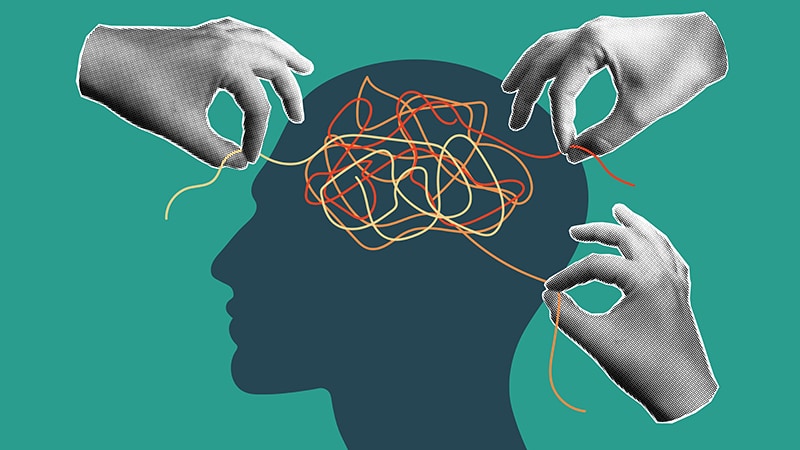Pop culture has emerged as an unexpected ally in the fight against the stigma surrounding mental health disorders, especially in psychiatry. Jean-Victor Blanc, MD, a psychiatrist at Saint-Antoine Hospital in Paris and a lecturer at Sorbonne University, has actively worked to destigmatize psychiatric conditions through pop culture. In this interview with Univadis France, a Medscape Network platform, Blanc shared his insights on how mental health is portrayed and discussed in mainstream culture and how healthcare professionals can better address these issues with patients.
How did you turn to pop culture to help destigmatize psychiatry?
I’ve always considered improving the inclusion of people with psychiatric disorders and sparking new interest in the field as part of my mission as a psychiatrist, alongside my clinical work. I started with small conferences in 2018. Psychiatric disorders, which had long been overlooked, were just beginning to emerge from the shadows. Films like Silver Linings Playbook (2013), where Bradley Cooper’s character dealt with personal struggles, and public discussions from public figures like Mariah Carey and Selena Gomez (2018, 2022), as well as Kanye West’s open discussion of his bipolar disorder on his album cover (2018), were instrumental. Gradually, mental health issues began to be openly discussed on social media and in popular TV shows, including on platforms like Netflix.
The COVID-19 pandemic also significantly raised societal awareness about mental health. I decided to seize this opportunity to continue destigmatizing psychiatric disorders, driven by my interest in pop culture. After publishing my book and launching the Pop & Psy Festival, I gained an audience that allowed me to amplify the voice of psychiatry, especially among young people. My goal has always been to encourage the public to engage with these issues and push policymakers to address them.
Are there still taboos surrounding psychiatric disorders?
Yes, taboos persist, both among the general public and medical professionals, particularly regarding certain conditions. Schizophrenia, for example, remains highly stigmatized to the point where some doctors hesitate to make the diagnosis. In France, only 4 out of 10 patients diagnosed with schizophrenia receive a formal diagnosis from their healthcare provider, even from psychiatrists. Many general practitioners feel ill-equipped to address these issues due to insufficient training in psychiatry. However, psychiatric disorders account for one-third of all general medical consultations in France.
Misconceptions, such as the false link between schizophrenia and violence, remain deeply ingrained in the medical community. As a result, psychiatric patients are often not taken seriously when expressing their symptoms and, consequently, receive less adequate care compared to others. This stigma and fear of violence still affect treatment, both in hospitals and community settings.
How can general practitioners best support their patients throughout the treatment process?
The care pathways for patients with mental health conditions are complex, and navigating the many available healthcare options can be challenging. Psychiatrists and hospital consultations are often overwhelmed, there are insufficient hospital beds, and access to mental health clinics can be delayed. Unfortunately, we often tolerate suboptimal mental healthcare. Even when patients move past denial and agree to seek treatment — a significant first step — the response from the healthcare system is often inadequate. One persistent barrier is the high cost of access to psychologists or psychotherapists. While France introduced the Mon Parcours Psy program, which offers 12 sessions covered by national health insurance, many practitioners feel their roles are undervalued. Consequently, finding a psychologist through this program can still be difficult.
I encourage general practitioners to stay updated through ongoing training, reading relevant literature, and participating in conferences, as the situation is unlikely to improve rapidly.
Psychiatry is a fascinating field! It remains one of the few specialties that is largely clinical, and recoveries are often more frequent than many realize. The ability to identify and address common psychiatric disorders — and knowing when to refer patients to specialists — are essential skills. Local mental health councils can help coordinate efforts and improve access to care, though these councils are not yet available in all regions. Therefore, it is crucial for each physician to establish a network of psychiatrists and psychologists in their area to ensure patients receive the appropriate care when needed.
This article was translated from Univadis France.
Source link
